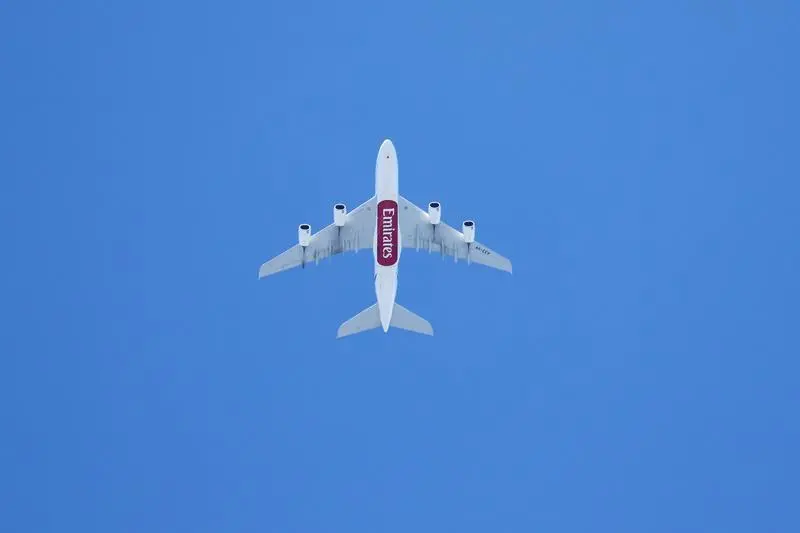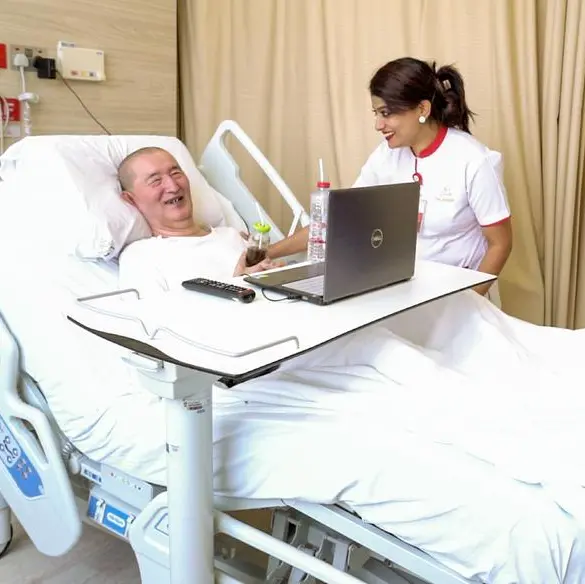PHOTO
Tuesday, Feb 07, 2017
Dubai: Emirates had to divert 60 of 194,000 flights in 2016 to treat passengers who needed immediate medical care, the airline said on Tuesday.
Given the prohibitive cost of a single flight diversion, Emirates is investing millions in medical training for pilots and crew and spending more than $7 million on installing advanced medical equipment in its aircraft to attend to ailing, older passengers experiencing in-flight medical emergencies.
Adel Al Redha, Emirates’ Executive Vice-President and Chief Operating Officer, said: “A single flight diversion can cost Emirates anything from $50,000 to over $600,000, depending on the nature of the diversion which include fuel, flight catering, landing and ground handling fees, air navigation cost, passenger rebooking costs and onward connection, as well as other associated costs to care for crew and passengers.”
Al Redha added that “the well-being of our customers is always our number-one priority”.
Dr Richard Jenkins, Emirates’ Vice-President for Medical Services, told Gulf News on Tuesday that “main conditions that present as emergencies are heart attacks, strokes and conditions relating to glucose and diabetes. We also deal with many other conditions including seizures, breathing difficulties and even on board labour in pregnancy”.
Making the call as to whether an in-flight emergency medical emergency can be handled by trained crew or needs immediate care at the nearest major city is complex, he said.
“This is a complex decision-making process involving the on-board captain, the ground based medical advisory service doctors who are using the telemedicine data being sent from the aircraft and also operation and network control to advise on suitable diversion options,” Dr Jenkins said. “The decision is always based on the safety of all passengers, crew and the aircraft itself and must factor in not only the medical emergency but also the aircraft type, load, flight path and whether the ground location actually has suitable medical services to support the sick passenger. Not every airport can handle our A380 aircraft for example and if we do divert we need to ensure the country or city near the airport has suitable medical services for that emergency. All of this information is then reviewed by these expert teams and a decision is made to divert or not and to where.”
Emirates, he said, has done its homework is completely self apprised of the growing trend of an aging world population that is boosting the prevalence of potential medical emergencies for older travelers going abroad later in life.
“An increasing number of older passengers flying does mean there will be more people travelling with age related medical conditions. Our training investment is to ensure that our crew always have the skills and knowledge to deal with a medical emergency on board no matter who the passenger is,” said Dr Jenkins.
Emirates’ training
In 2016, Emirates delivered nearly 23,000 hours of medical training for cabin crew and pilots.
On average, Emirates’ crew make about 20 calls to the medical advisory service per 100,000 passengers flown.
Training includes basic life support (CPR), handling medical conditions including asthma, heart disorders, seizures and allergic reactions; trauma related topics and even emergency childbirth amongst others.
Pilots also attend training sessions covering topics such as hypoxia, malaria, dengue, trauma, CPR and choking and occupational health issues.
New guidelines
In 2015, the International Air Transport Association issued its first Guidance on Managing Medical Events for its airline members and noted that “statistics show the number of passenger’s carried continues to increase year after year. As a result, the number of on-board medical incidents increases as well. In addition the continuous increase in the average age of passengers, the stress some experience of travelling and other additional factors associated with travel may also trigger a medical event on board.”
The new IATA guidelines recommend:
Evaluate safety risks.
Train cabin crew in first aid.
Furnish the aircraft with recommended first aid equipment and supply.
Screen passengers before the flight.
Develop procedures to effectively manage on board medical events.
By Derek Baldwin Chief Reporter
Gulf News 2017. All rights reserved.





















